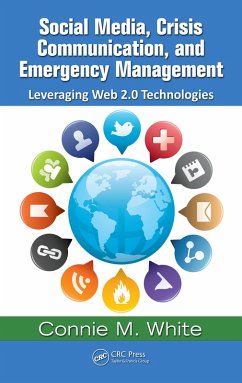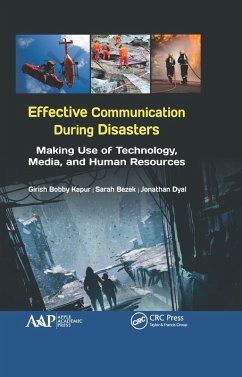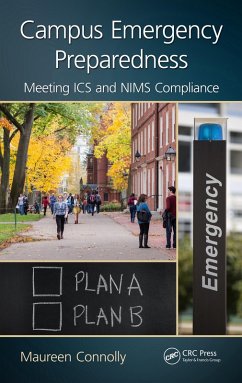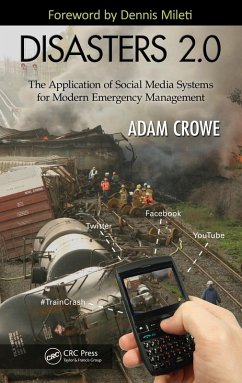
Social Media, Crisis Communication, and Emergency Management (eBook, ePUB)
Leveraging Web 2.0 Technologies
Versandkostenfrei!
Sofort per Download lieferbar
142,95 €
inkl. MwSt.
Weitere Ausgaben:

PAYBACK Punkte
71 °P sammeln!
Although recent global disasters have clearly demonstrated the power of social media to communicate critical information in real-time, its true potential has yet to be unleashed. Social Media, Crisis Communication, and Emergency Management: Leveraging Web 2.0 Technologies teaches emergency management professionals how to use social media to improve emergency planning, preparedness, and response capabilities. It provides a set of guidelines and safe practices for using social media effectively across a range of emergency management applications.Explaining how emergency management agencies can t...
Although recent global disasters have clearly demonstrated the power of social media to communicate critical information in real-time, its true potential has yet to be unleashed. Social Media, Crisis Communication, and Emergency Management: Leveraging Web 2.0 Technologies teaches emergency management professionals how to use social media to improve emergency planning, preparedness, and response capabilities. It provides a set of guidelines and safe practices for using social media effectively across a range of emergency management applications.
Explaining how emergency management agencies can take advantage of the extended reach these technologies offer, the book supplies cutting-edge methods for leveraging these technologies to manage information more efficiently, reduce information overload, inform the public, and ultimately save lives. Filled with real-world examples and case studies, it is an ideal self-study resource. Its easy-to-navigate structure and numerous exercises also make it suitable for courses at both the undergraduate and graduate levels.
From crowdsourcing and digital volunteers to mapping and collective intelligence, Social Media, Crisis Communication, and Emergency Management: Leveraging Web 2.0 Technologies facilitates a clear understanding of the essential principles of social media. Each chapter includes an example of a local-level practitioner, organization, or agency using social media that demonstrates the transformative power of social media in the real world. The book also includes numerous exercises that supply readers with models for building their own social media sites and groups-making it a must-read for anyone who wants to learn more about the communication and information structures supported by social media.
Explaining how emergency management agencies can take advantage of the extended reach these technologies offer, the book supplies cutting-edge methods for leveraging these technologies to manage information more efficiently, reduce information overload, inform the public, and ultimately save lives. Filled with real-world examples and case studies, it is an ideal self-study resource. Its easy-to-navigate structure and numerous exercises also make it suitable for courses at both the undergraduate and graduate levels.
From crowdsourcing and digital volunteers to mapping and collective intelligence, Social Media, Crisis Communication, and Emergency Management: Leveraging Web 2.0 Technologies facilitates a clear understanding of the essential principles of social media. Each chapter includes an example of a local-level practitioner, organization, or agency using social media that demonstrates the transformative power of social media in the real world. The book also includes numerous exercises that supply readers with models for building their own social media sites and groups-making it a must-read for anyone who wants to learn more about the communication and information structures supported by social media.
Dieser Download kann aus rechtlichen Gründen nur mit Rechnungsadresse in A, B, BG, CY, CZ, D, DK, EW, E, FIN, F, GR, HR, H, IRL, I, LT, L, LR, M, NL, PL, P, R, S, SLO, SK ausgeliefert werden.













